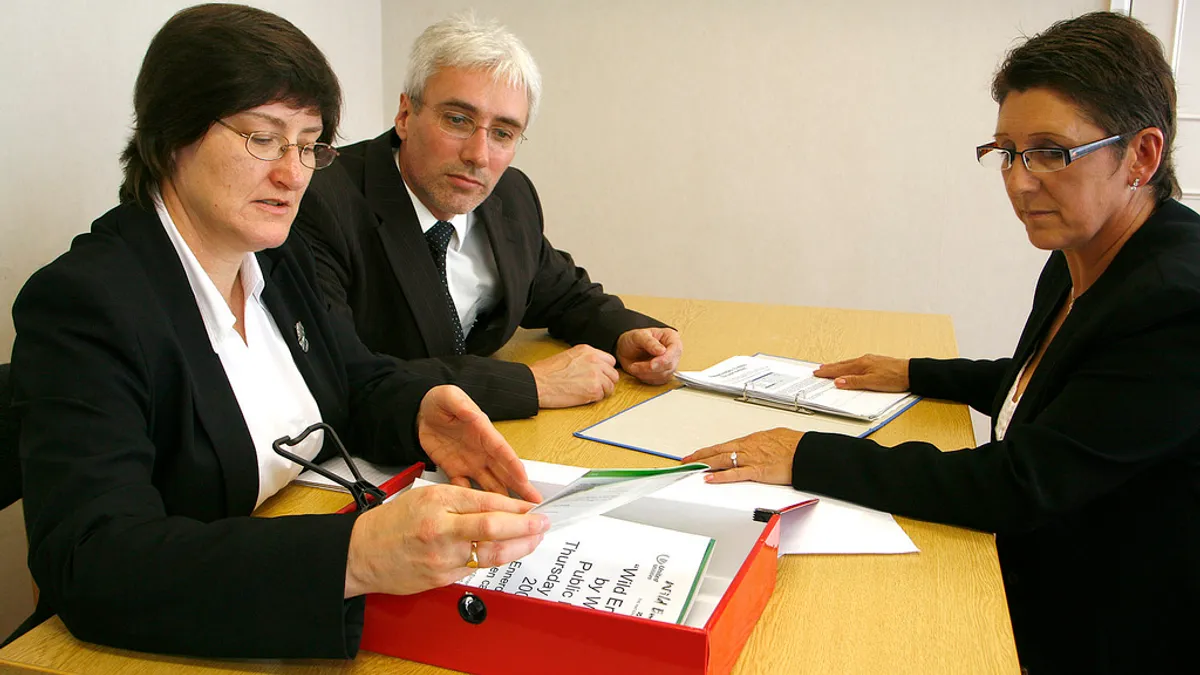For employers locked in the difficult balancing act of balancing recruiting budgets and competing in the war for talent, the reality of paying only for job seekers who actually become applicants is a definite winner.
That’s the concept behind Appcast, which bills itself as the first pay-per-applicant job ad exchange in the $5 billion recruitment advertising space.
With Appcast, a StartDate Labs company, employers and their recruiters can advertise an employer’s open jobs on a “pay-per-applicant” basis across a network of thousands of career and consumer sites. Launched in January 2014, Appcast works with all applicant tracking systems, requires no long-term contracts and is simple to use, according to Chris Forman, CEO and founder of StartDate Labs, an incubator based in Lebanon, N.H.
Simply, Forman explains that Appcast’s pay-per-applicant model differs from the typical cost-per-click or post model that can be an expensive way to lure applicants.
“Employers only pay for the job ad once the candidate completes a job application,” he says. “Most importantly, the recruiter sets the price that they're willing to pay for an applicant. No other costs or fees are associated with using the platform.”
With that, employers are guaranteed that their recruitment budget is going towards applicants. Using its proprietary rules-based, programmatic software, Appcast is able to help employers improve the ROI of their sourcing costs.
Appcast works in a few simple steps. First, it imports jobs from an employer’s career site. Employers specify which jobs need applicants and set the price they are willing to pay for an applicant. Then Appcast promotes an employer’s jobs across the web where job seekers “live, work and play,” Forman says. Employers only pay when someone applies for a job.
Recruiters – the people behind the operation of traditional ad buying – specialize in working with hiring managers and job seekers to make the best work place matches. They are business process professionals, Forman explains. Programmatic ad-buying, however, is marketing.
“It’s time for recruiters to follow the lead of professional marketers and allow software and data to drive the best placement of their ads,” he says. “If recruiters can leverage this technology just like marketers, it will deliver a dramatically higher return on investment, and will allow for a more targeted approach to placing job ads.”
Forman says StartDate Labs initially got rolling with its first company, Startwire, a platform that provides free, automatic job application status updates to job seekers via daily emails and texts. Used by more than 4.5 million job seekers, the solution helps people who previously had no ability to track their job applications.
Startwire and Appcast were architected by StartDate Labs' chief technology officer Dzmitry Nikitsin, who was recently was named a 2015 Game Changer by Workforce Magazine. In addition, Appcast received a 2014 Top HR Product award by Human Resource Executive magazine and Nikitsin was recognized by the Recruiting Service Innovation Awards with a Platinum Award in 2014.
After Startwire, Forman and Nikitsin turned their attention to the employer side to help recruiters find qualified talent more efficiently and cost effectively.
“Now, recruiters can allocate budgets toward hard-to-fill positions that actually need advertising, giving them significantly improved returns on their advertising spend,” Nikitsin says.
The “pay only if it works” concept saves HR money because it’s a more economically efficient way to hire, and any strategy that allows HR execs to save money on their recruitment spend is a positive investment, Nikitsin adds.
In the last 20 years, job ads have gone through a complete revolution. Looking at this from a bigger picture, he says, ideas in the industry have moved fast and will continue to do so. Since advertisers started paying large sums of money on cost-per-click advertising, Forman sees the “pay-per-applicant” model as the next natural step in the evolution.
“We have found this resonating incredibly well – in just 18 months of being in business, we have nearly 200 enterprise clients,” Forman says.













